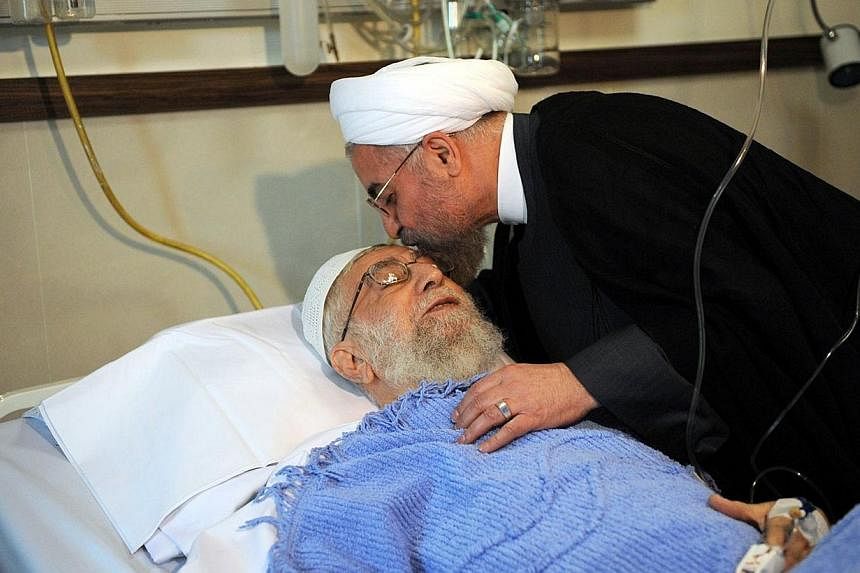TEHERAN (AFP) - Iran's Supreme leader Ayatollah Ali Khamenei successfully underwent prostate surgery it was announced on Monday, in an unprecedented public statement about his health, which has long been the subject of speculation.
The 75-year-old cleric, who has ruled since the death of the Islamic republic's founder Ayatollah Ruhollah Khomeini in 1989, had a routine operation, according to IRNA, Iran's official news agency.
"There is nothing to worry about," the supreme leader said in a brief interview on state television which was recorded before he entered hospital. "This does not mean that prayers are not welcome... but it is a normal operation," he added.
As the country's supreme guide, Ayatollah Khamenei has the final word on all matters of state and as such he outranks all politicians, including the country's President Hassan Rouhani.
As an example of his influence, Ayatollah Khamenei made a speech on July 7 that outlined Iran's demands under any nuclear deal with the West, two weeks before a deadline for an agreement was ultimately missed.
The doctor in charge of the medical team that conducted Ayatollah Khamenei's operation said that patients undergoing prostate surgery tended to stay in hospital for between three and five days.
"This is true for him," Dr Alireza Marandi told state television, referring to Ayatollah Khamenei. "It will affect his work rate for several weeks."
Mr Rouhani, who was in the north-eastern city of Mashhad on Sunday, was due to fly on to Kazakhstan but instead returned to Teheran to be at the supreme leader's bedside, a political aide said.
Monday's announcement was the first time that official information has been given on Ayatollah Khamenei's health. In recent years, there have been widely circulated rumours that he had prostate cancer.
Before being appointed as head of state 25 years ago, Ayatollah Khamenei served as president for almost eight years during the Iran-Iraq war.
Iran's Assembly of Experts, comprised of 86 religious figures elected by the people, is responsible for appointing the supreme leader and monitoring his actions. The supreme leader is appointed to an indefinite term but the assembly has the power to dismiss him.
The group met in Teheran last week but its president, Ayatollah Mohammad Reza Mahdavi Khani, an 83-year-old cleric, was absent due to his ill-health. He is in a coma and has been hospitalised since June 4 after suffering a stroke.

